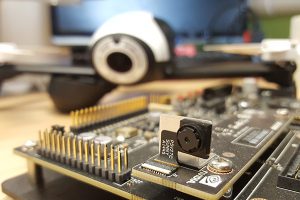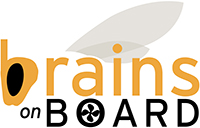 Advocacy
Advocacy
The Brains on Board team aim to act as advocates for engineering and the sciences, and also for the preservation of honeybees; our activities are detailed below — for outreach activities please see the Outreach page.
House of Lords Select Committee on Artificial Intelligence
The House of Lords Select Committee on Artificial Intelligence began taking evidence in July 2017. Our submitted evidence can be read here.
Robot Ethics and Responsible Innovation
The Brains on Board team met in Sheffield on June 14th and 15th, facilitated by creativity@home funds from EPSRC, to explore responsible innovation and advocacy.
Our meeting was distilled into the following ethical manifesto. You can see some of the process we followed here.
For more information on responsible innovation see
- Prof Alan Winfield (University of the West of England, Brains on Board Advisory Board Member)
- AREA (EPSRC Principles of Responsible Innovation)
- ORBIT (EPSRC-funded Responsible Research and Innovation project)
| Legal | General audience | Commentary |
|---|---|---|
| Robots are multi-use tools. Robots should not be designed solely or primarily to kill or harm humans, except in the interest of national security | Robots should not be designed as weapons, except for national security reasons. | BoB robots are primarily designed as basic research tools to better understand the autonomy of animals and artificial agents. BoB will work towards applications such as autonomous robots for agriculture and search and rescue. We recognise that other roboticists may re-use our technology and BoB is committed to advocate responsible use and do everything possible to discourage misuse. BoB will never get involved in any weapons related research or application. |
| Humans, not robots, are responsible agents. Robots should be designed, operated as far as is practicable to comply with existing laws & fundamental rights & freedoms, including privacy. | Robots should be designed and operated to comply with existing law, including privacy. | The robots designed and used within BoB will have bio-mimetic controllers based on bee brains. Because the controllers are simulated brains, their actions are not governed by a simple rule set that could incorporate privacy laws, and laws around safe drone operation. Therefore, BoB robots will be operated under close supervision of humans including an over-riding manual “off” switch. The BoB consortium is committed to additional safeguards for eventual applications, including manual override and additional “virtual limits”, e.g. to ensure a safe distance to humans is enforced at all times. |
| Robots are products. They should be designed using processes which assure their safety and security. | Robots are products: as with other products, they should be designed to be safe and secure. | BoB is based on existing drone hardware that has already undergone safety certification. The developed bio-mimetic controllers will be made safer by an additional rule system as described above. The robots will also be secured from hacking by secure cryptographic protocols. Product prototypes will be extensively tested for their safe use. |
| Robots are manufactured artefacts. They should not be designed in a deceptive way to exploit vulnerable users; instead their machine nature should be transparent | Robots are manufactured artefacts: the illusion of emotions and intent should not be used to exploit vulnerable users. | The robots are not intended for any roles that include social interaction with humans. The nature of the technology will be fully transparent to technical personnel through Open Source development approaches. |
| The person with legal responsibility for a robot should be attributed. | It should be possible to find out who is responsible for any robot. | During research the ownership and responsibility of BoB researchers will be obvious through their physical presence. BoB supports the notion that future products should undergo a registration and licensing scheme. |
